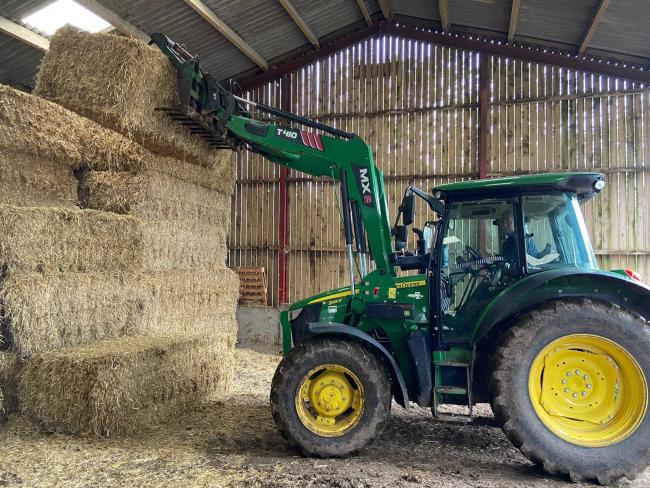
Farmers are being encouraged to take safety precautions after recent figures show that 5% of on-farm workplace deaths are caused by falling bales.
Incidents involving bales have tragically resulted in 18 deaths since 2000, according to H&H Insurance Brokers and IRM Safety.
One of the main dangers of bale handling is being crushed or rolled over by bales, or getting trapped in tractors when moving them from one place to another.
Neil Elsender, managing director of IRM Safety, said much of the work associated with bales can lead to 'fatal and serious accidents' if not carried out safely.
"Considering their significant weight, and the inherent instability of stacks, precautions must be taken to protect farmers during every stage of the bale handling.”
He urged farmers and their workers to review their systems for storage, handling, and training to prevent avoidable tragedies.
"Incidents occur in the field during baling and transport, during their storage and subsequent de-stacking and handling, for example, when bedding or feeding animals.
"Building awareness of better health and safety practices can reduce likelihood of accidents and help keep insurance premiums down for your farming business,” Mr Elsender said.
How can I improve bale safety?
H&H Insurance Brokers and IRM Safety have set out particular steps that will help reduce the likelihood of harm and injury:
• Make sure bales are stacked safely in fields, farmyards, or buildings
• Stacks are not excessively high
• Stacks are built on firm, dry, level and freely draining ground
• Stacks are constructed with a wide base and that bales are in good condition ensuring sturdy foundation
• Maintenance of stacks should take place regularly – any that have become unstable should be rebuilt
• There is enough space to allow tractors, trailers, and other vehicles to manoeuvre
• Never overreach for bales and limit working to near edges
Removing bales from the field and transporting them is also associated with health and safety risks:
• Plan routes over fields in advance and inform drivers of any rough ground, slopes, tracks and gateways
• Assess ground conditions and potential contact with overhead power lines
• Trailers must not be overloaded
• No bales should hang over the edges of the trailer
• The trailer must be secured even over short distances with suitable straps, and double straps at the rear of the load
• Always travel at a safe and appropriate speed
• Remember to consider the effect of the weight on the vehicle’s break-capacity
It comes as the Health and Safety Executive (HSE) recently released its annual figures for the number of work-related fatalities in Great Britain.
Figures show there were 20 fatal injuries to agricultural, forestry and fishing workers in 2019/20, the lowest level on record.
